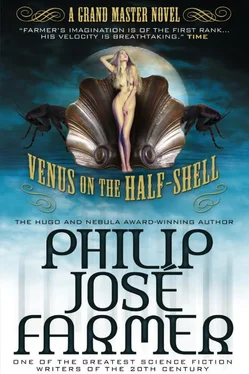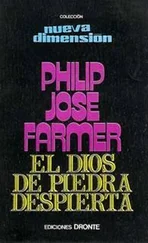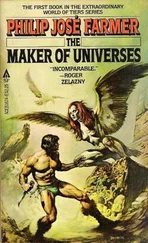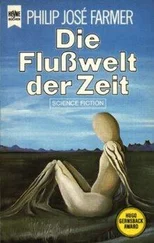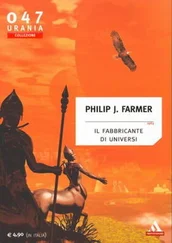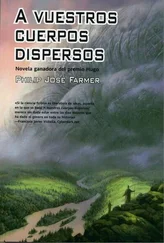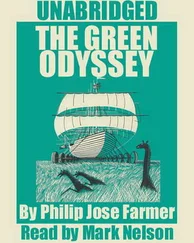But reviews from the likes of Publisher’s Weekly, The Washington Post, Eastern News, Science Fiction Review Monthly, National Observer, Locus, and the UCLA Daily Bruin were more favorable. In fact, the Bruin reviewer went to great lengths to “prove” that Vonnegut was in fact the author of Venus on the Half-Shell .
The novel was a bigger success than even Farmer could have dreamed. At least, we can assume that it was a bigger success than he could have dreamed. But he was a man with extremely big dreams, let’s not forget! Sorry. Nitpicking again. Related to Xog, I must be… Yes, that’s plausible, for Xog never existed either…
On March 16, 1975, the New York Times Book Review reported Dell had sold 225,000 copies in the first month. Farmer was having a blast. Dell was going to sponsor a “Who is Kilgore Trout?” contest and they had begun forwarding Kilgore Trout’s fan mail to him. Farmer really enjoyed answering these letters, sending replies back from “Kilgore Trout” (several examples of these were published in Farmerphile #5, July 2006). But Farmer wasn’t satisfied with having merely pulled off the biggest hoax in science fiction since Orson Welles’ “War of the Worlds” radio broadcast. He had plans to take things to a whole other level. Farmer loved taking things to other levels and he was extremely good at it. Try reading the World of Tiers series and you’ll see what I mean. Literally.
The March issue of The Magazine of Fantasy and Science Fiction contained “A Scarletin Study,” by Simon Wagstaff’s favorite author, me, Jonathan Swift Somers III. This story, about Ralph von Wau Wau, the hyperintelligent German Shepherd described in Venus on the Half-Shell, was to be the first in a series of stories written by “fictional authors.” In addition to myself, Farmer also wrote stories “by” Harry Manders, Paul Chapin, Rod Keen, and Cordwainer Bird. He further planned to collect these stories in an anthology and began recruiting other writers such as Philip K. Dick, Howard Waldrop, and Gene Wolfe to join in the fun.
While attending Minicon, a science fiction convention in Minneapolis, in April 1975, Farmer was interviewed by David Truesdale, Paul McGuire, and Jerry Rauth for the fanzine Tangent. By now rumors were already beginning to circulate that Farmer was the author of Venus on the Half-Shell. While denying he was the culprit, Farmer laughingly offered up the possibility of Trout being “a collaboration between Harry Harrison and Ted White. Or Joanna Russ and Phil Dick—or Harlan Ellison and Captain S.I. Meek.”
I doubt any of you remember Captain Meek? He wrote a madcap story called “Submicroscopic” back in the early ’30s and followed that with a sequel that was a novella, “Alwo of Ulm.” But I’m digressing again. Forgive me…
However, before the issue with the interview could be published, Dave Truesdale discovered a notice that had appeared in the New York Times Book Review on March 23 about whom the author of Venus on the Half-Shell might really be: “This week, from Peoria comes a letter from a man who asks not to be named, stating that he is its author.”
Even though, after calling Farmer to confirm, he was able to trumpet the news on the cover of the May ’75 issue, “Tangent Hooks Farmer on Trout,” Truesdale was not happy the New York Times Book Review chose to so callously let the cat out of the bag; seriously, how many science fiction authors live in Peoria? In fact, in the editorial where he broke the news, this sums up his reaction: “All I can say is FUCK YOU to the New York Times…” Farmer wasn’t happy either, but there was no point in denying the story now.
Of course, the news was not immediately universally known. In a bit of coincidental timing that could only happen in fiction, when the aforementioned review appeared in the UCLA Daily Bruin “proving” Vonnegut wrote Venus on the Half-Shell , Farmer happened to be at UCLA. He was there as part of an Extension Course which featured a guest science fiction author each week. The day the review appeared, May 20, Farmer revealed to the class that he was, in fact, “Kilgore Trout” and the author of Venus on the Half-Shell. The following week, a correction was printed: “We’ve been had…”
Slowly the word continued to spread. Locus confirmed it in early June, also saying, “Kurt Vonnegut, who went along with the gag at first, has become very annoyed because of reviews and statements made about the book…” Farmer explained years later that half the people said it was Vonnegut’s worst book, and the other half said it was his best. In July, Farmer was the guest of honor at RiverCon I in Louisville, where his speech, “Now It Can be Told” (which also happens to be the title of one of Kilgore Trout’s stories, as described by Vonnegut), was about writing Venus on the Half-Shell . Tragically, no copy of this speech is known to exist. In August, a long interview with Farmer about the affair appeared in Science Fiction Review.
The following year my story, “The Doge Whose Barque Was Worse Than His Bight,” was published in the November issue of The Magazine of Fantasy and Science Fiction, and then I faded from existence, nearly forgotten. My stories have been reprinted a few times, but that is it. When Venus on the Half-Shell and Others (Subterranean Press, 2007), a collection focusing on Farmer’s fictional-author series, was published, even though I was the most prolific, the most well known of Farmer’s fictional authors, Tom Wode Bellman was invited to write the foreword. And he’s not even a proper fictional author, just a stand-in for Farmer himself!
But I’m not too unhappy about being who I am. I just have one worry that nags at me whenever I lie awake at night unable to sleep (because I don’t exist; whoever heard of a nonexistent entity sleeping?) And that worry is this: I was created as a byproduct of writer’s block. If my father, Farmer, hadn’t had that block at that time, it’s very unlikely I would be here.
Now then, birth is the opposite of death. So if I was created by a block, then what will kill me will be the opposite of that, in other words creative flow. Farmer is no longer with us. He’s on the other side now. And that’s the biggest block any writer can ever have: to have shuffled off this mortal coil. But what if he starts writing again on the other side? Creative flow is the opposite of a writer’s block and the opposite of a block is death to me. If Farmer starts writing again, wherever he is now, I might somehow vanish… I know that’s bizarre logic and an obscure thing to fret about. But I am bizarre. Remember: I’m writing this article even though I’m fictional!
I can almost feel someone walking over my grave right now, even though I won’t have a grave because I don’t have a solid body to bury, but the figure of speech is appropriate; and rather bizarrely I can reveal that its first recorded use in print was in Simon Wagstaff’s A Complete Collection of Genteel and Ingenious Conversation, published in 1738. The date isn’t an error. This was a different Simon Wagstaff, one of the pseudonyms of the satirist Jonathan Swift. Talk about recursion!
And where is Farmer now, I hear you ask? Well, I don’t know. But I’ll say this: a great many obituaries pictured him waking up along the banks of the million-mile-long river that was one of his most amazing creations in a creative life full of astounding concepts. And yet… As I mentioned earlier, Farmer was the greatest ever master of a type of writing called Bangsian Fantasy. I’d never even heard of Bangsian Fantasy until recently. It’s named after the mostly forgotten writer John Kendrick Bangs (1862-1922), whose most famous book was House-Boat on the Styx , in which Charon upgrades from his leaky old skiff to a luxurious boat capable of holding many dead people at once, dead people who happen to have been real in your world and not just invented by Bangs.
Читать дальше
